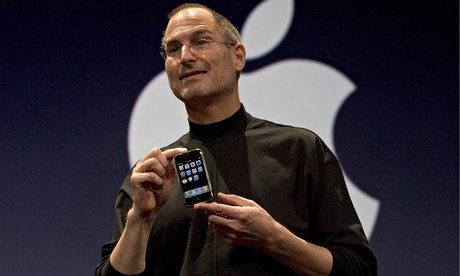This is a story about digital Darwinism. Once upon a time, the abiding nightmare of authors and students who used their PCs and laptops to compose books, dissertations and essays was that a random accident – theft of a laptop, perhaps, or a hard-disk crash – would be enough to vaporise years of irreplaceable work. So we all resorted to primitive schemes to protect against that terrible eventuality. In the early days, these took the form of piles of floppy disks stored at other locations; after that, we "burned" the precious files on to blank CDs; later still, we copied them on to USB sticks and flash drives that went in our pockets or on our keyrings; finally, we were even driven to emailing the damned things to ourselves.
Then along came an idea that made all these stratagems look, well, clumsy. It was called Dropbox. You logged on to the Dropbox site, registered (for free) and downloaded a small program (called a "client") on to your computer. Once installed, this program created a special folder – helpfully labelled "Dropbox" – which appeared on your desktop. From then on, you saved any file that you wanted to back up in your Dropbox folder.
So far, so mundane. But even as you continued with your writing, the Dropbox client was busy in the background – uploading the file to your Dropbox in the cloud. This meant that the file was automatically backed up on a distant server, from which it could always be retrieved. So if your laptop was nicked or your hard-drive failed, at least your precious document was safe.
There was another neat twist to the concept. If you used several different computers – say at home and at work – you could install Dropbox on them all. And the Dropbox folder on those machines would automatically sync with your folder in the cloud, so the latest versions of your precious files were always available to you. When smartphones and tablet computers arrived, the same facilities were extended to them, too.
The best thing of all was that it was free! Well, up to a point: the first 2GB of cloud storage was free; after that, it was $10 a month for up to 50GB of space.
You can guess what happened. Millions of users, including this columnist, fell upon Dropbox like ravening wolves. And, as night follows day, it followed that every document we worked on came eventually to be filed in our Dropbox folders, which meant that pretty soon we hit the 2GB barrier.
But by then our workflows were so comprehensively constructed around Dropbox that $10 a month seemed a small price to pay for such an efficient, anxiety-reducing service. So we upgraded. As a result, the service now has 50 million users, with a new one joining every second.
Dropbox is thus a pin-up for the new web-based businesses that emerged after the collapse of the first internet boom. Founded in 2007 by a smart MIT graduate, Drew Houston, with $15,000 in startup funding, it's based around clever, well-written software and a business model that intelligently exploits the "freemium" idea – providing limited but useful services for free while encouraging users to sign up for a premium, fee-paying service. So unlike many of the old dot-com startups, it was earning significant revenues pretty soon after its foundation. It's a real business, in other words.
This fact did not escape the late Steve Jobs who, in 2009, summoned the young Mr Houston with a view to acquiring Dropbox. Houston declined the overture, saying that he hoped to build a big company rather than be swallowed up by an established behemoth. Whereupon Jobs smiled his sinister smile, opined that Dropbox was "a feature, not a product" and informed him that Apple would be going after Dropbox's market.
What Jobs was getting at is that a feature is something that really belongs, or can easily be incorporated, in something else, rather than something that can stand on its own. On 12 October, Houston discovered what that something else might be. Apple launched its iCloud service which, the company burbles, "stores your music, photos, documents and more, and wirelessly pushes them to all your devices. Automatic, effortless and seamless – it just works". Just like Dropbox.
So here's the story. One minute, you have a beautiful little business with great prospects. You are offered an opportunity to cash out – and incidentally make yourself rich – by selling your baby to a giant company. But you decline the offer and the next day you find that the giant has decided to crunch you underfoot. Suddenly, you're fighting for your life. Welcome to the digital jungle.










